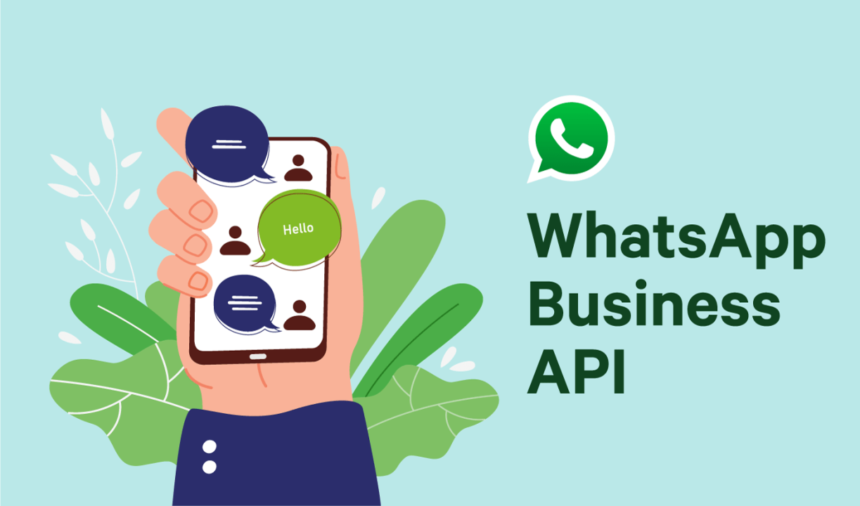WhatsApp is one of the world’s most popular messaging platforms, with over 2 billion active users in more than 180 countries. Its simplicity, accessibility, and ubiquity have made it a preferred tool for personal and professional communication. For businesses, WhatsApp offers an unparalleled opportunity to engage with customers on a platform they already trust and use every day.
The Official WhatsApp API takes this engagement to the next level, enabling businesses to streamline operations, provide superior customer service, and create personalized marketing campaigns. In this article, we’ll explore how this tool is transforming business communications and why its adoption is becoming a strategic imperative.
What is the Official WhatsApp API?
Unlike the standard version of WhatsApp used for personal communication or the WhatsApp Business app for small businesses, the Official WhatsApp API is designed for medium to large businesses. It provides advanced features that allow businesses to integrate WhatsApp with their existing systems, automate communications, and efficiently manage large volumes of customer interactions.
Key Features of the Official WhatsApp API Include
- Integration with CRM and ERP systems: Businesses can connect WhatsApp to customer relationship management (CRM) platforms for seamless data synchronization.
- Automated Messaging: Set up chatbots and templates for instant responses to customer queries.
- Customizable Workflows: Tailor communication workflows based on business needs.
- Security and Compliance: Ensure end-to-end encryption and compliance with global privacy regulations, such as GDPR.
In essence, the Official WhatsApp API enables businesses to scale customer interactions while maintaining a personalized touch.
Key Benefits for Businesses
1. Automate Customer Service with Chatbots
With the official WhatsApp API, businesses can implement AI-powered chatbots to handle routine customer queries instantly, 24/7.
Benefits of automation:
- Quicker resolution of frequently asked questions.
- Free up human agents to focus on more complex tasks.
- Improve response times, resulting in higher customer satisfaction.
For example, an e-commerce company can use a chatbot to provide order status updates, handle return requests, or answer product questions in seconds.
2. Personalized Marketing Campaigns
With the WhatsApp API, businesses can send targeted messages based on customer preferences, purchase history or location. Unlike mass email or SMS, WhatsApp messages feel more personal and are less likely to be ignored.
Examples of personalized marketing on WhatsApp include
- Promotions and offers: Share exclusive discounts or early access to sales.
- Event Notifications: Invite customers to webinars, product launches, or local events.
- Reminders: Send personalized reminders for appointments, payments due, or replenishment.
By leveraging the intimacy of WhatsApp, brands can foster stronger relationships and increase customer loyalty.
3. Speed Up Order Processing and Feedback Loops
Integrating WhatsApp with order management systems can dramatically reduce the time it takes to process orders and collect feedback. Businesses can use the API to confirm orders, share invoices, and even process payments directly through WhatsApp.
Benefits:
- Streamline communication between customers and support teams.
- Real-time updates on order status and delivery tracking.
- Instantly collect feedback through surveys or rating systems to help businesses improve their offerings.
Examples of Successful Implementation
Case Study 1: Sephora
Sephora integrated the WhatsApp API to improve their customer experience. Using WhatsApp, they enabled customers to
- Schedule in-store consultations.
- Get beauty tips and product recommendations.
- Easily track their orders.
This resulted in improved customer satisfaction and a significant increase in appointment bookings.
Case Study 2: Uber
Uber uses the WhatsApp API to streamline ride booking. Customers in certain regions can book rides directly through WhatsApp, without having to download the Uber app. You can:
- Get trip confirmations.
- Get driver details.
- Track rides in real time.
This innovation made the service more accessible, especially in markets with limited app usage.
Trends and Future of the WhatsApp API
1. Omnichannel Communication
The future of customer engagement is omnichannel communication. The WhatsApp API is a critical part of this trend, allowing businesses to integrate with other channels such as email, social media, and live chat to create a unified customer experience.
2. Advanced AI and Natural Language Processing (NLP)
As AI and NLP technologies evolve, chatbots will become more conversational and human-like. This will further improve the customer experience and reduce the need for human intervention.
3. Payments and E-commerce
WhatsApp is rapidly expanding its in-app payment capabilities. With WhatsApp Pay already live in some regions, businesses can expect to see a surge in conversational commerce, where the entire purchase process – from product inquiry to payment – takes place within WhatsApp.
Conclusion
The Official WhatsApp API is more than just a communication tool-it’s a transformative technology that enables businesses to connect with customers in a fast, personalized, and efficient way. By adopting the WhatsApp API, businesses can automate routine tasks, create meaningful customer interactions, and stay ahead in a competitive marketplace.
As communication trends continue to evolve, WhatsApp API’s role in omnichannel strategies and conversational commerce will only grow. Businesses looking to increase customer satisfaction and operational efficiency should consider integrating this powerful tool into their workflow today.
Make the Official WhatsApp API the cornerstone of your customer communication strategy.


